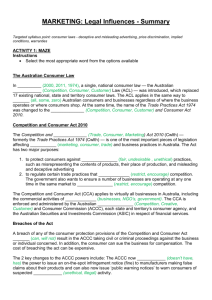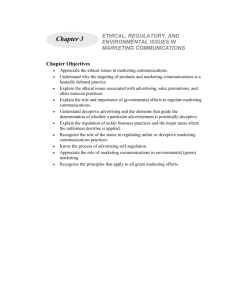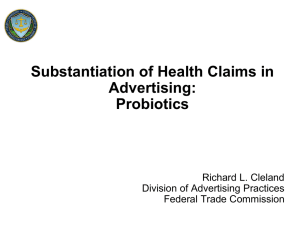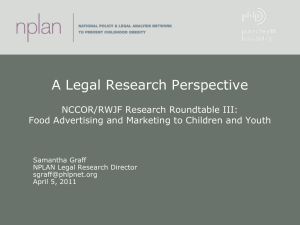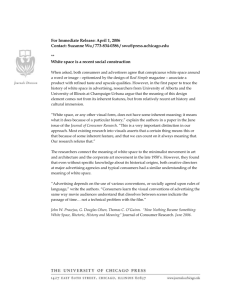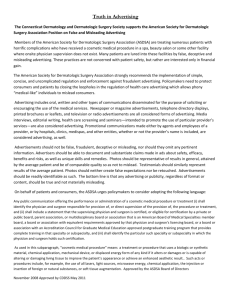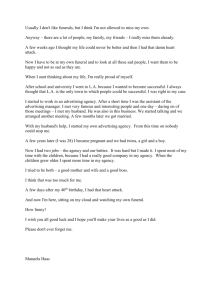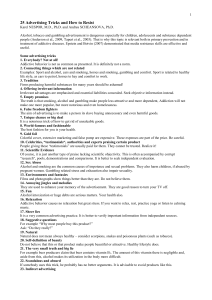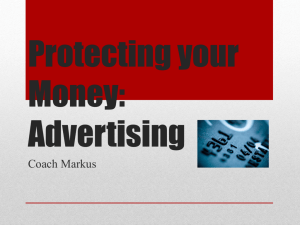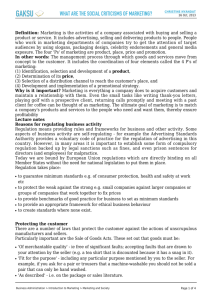CLARIFICATION OF 12-36
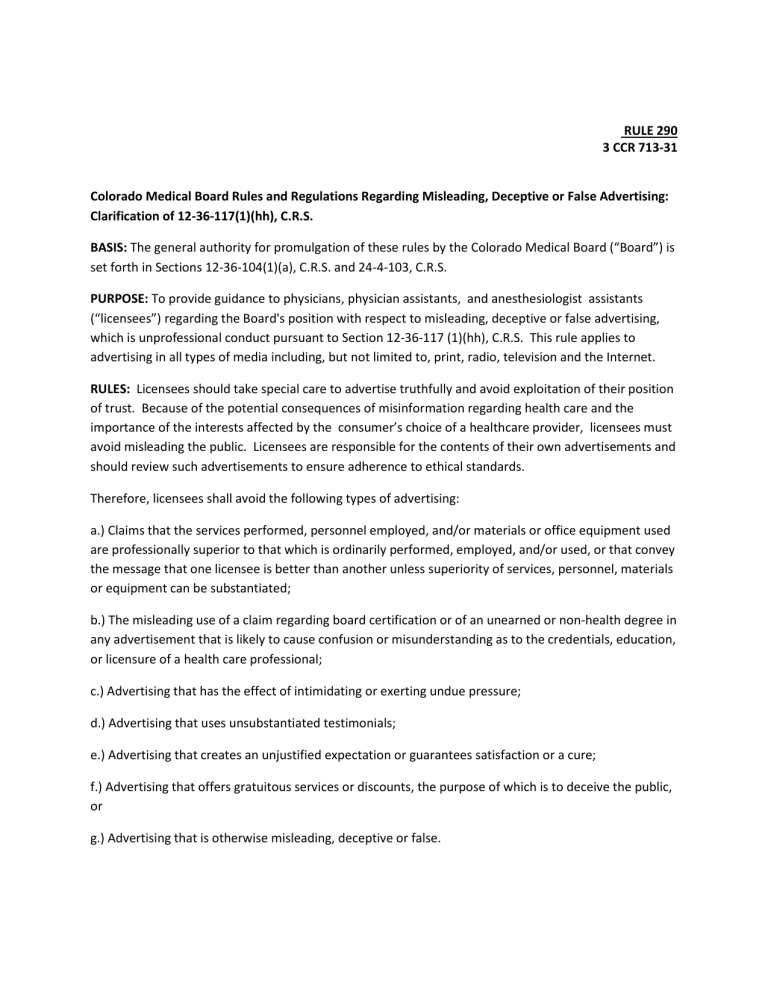
RULE 290
3 CCR 713-31
Colorado Medical Board Rules and Regulations Regarding Misleading, Deceptive or False Advertising:
Clarification of 12-36-117(1)(hh), C.R.S.
BASIS: The general authority for promulgation of these rules by the Colorado Medical Board (“Board”) is set forth in Sections 12-36-104(1)(a), C.R.S. and 24-4-103, C.R.S.
PURPOSE: To provide guidance to physicians, physician assistants, and anesthesiologist assistants
(“licensees”) regarding the Board's position with respect to misleading, deceptive or false advertising, which is unprofessional conduct pursuant to Section 12-36-117 (1)(hh), C.R.S. This rule applies to advertising in all types of media including, but not limited to, print, radio, television and the Internet.
RULES: Licensees should take special care to advertise truthfully and avoid exploitation of their position of trust. Because of the potential consequences of misinformation regarding health care and the importance of the interests affected by the consumer’s choice of a healthcare provider, licensees must avoid misleading the public. Licensees are responsible for the contents of their own advertisements and should review such advertisements to ensure adherence to ethical standards.
Therefore, licensees shall avoid the following types of advertising: a.) Claims that the services performed, personnel employed, and/or materials or office equipment used are professionally superior to that which is ordinarily performed, employed, and/or used, or that convey the message that one licensee is better than another unless superiority of services, personnel, materials or equipment can be substantiated; b.) The misleading use of a claim regarding board certification or of an unearned or non-health degree in any advertisement that is likely to cause confusion or misunderstanding as to the credentials, education, or licensure of a health care professional; c.) Advertising that has the effect of intimidating or exerting undue pressure; d.) Advertising that uses unsubstantiated testimonials; e.) Advertising that creates an unjustified expectation or guarantees satisfaction or a cure; f.) Advertising that offers gratuitous services or discounts, the purpose of which is to deceive the public, or g.) Advertising that is otherwise misleading, deceptive or false.
At the time any type of advertisement is placed, the licensee must possess and rely upon information that, when produced, would substantiate the truthfulness of any assertion, omission or claim set forth in the advertisement. When using a subjective testimonial whose truthfulness cannot be substantiated, the advertisement should also include disclaimers or warnings as to the credentials of the person making the testimonial.
Adopted: MAY 13, 2004, EFFECTIVE AUGUST 1, 2004; Revised 08/19/10; Effective 10/15/10; Revised
5/22/14; Effective 7/15/14
